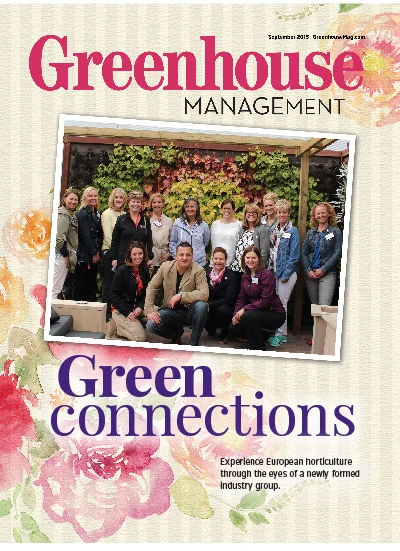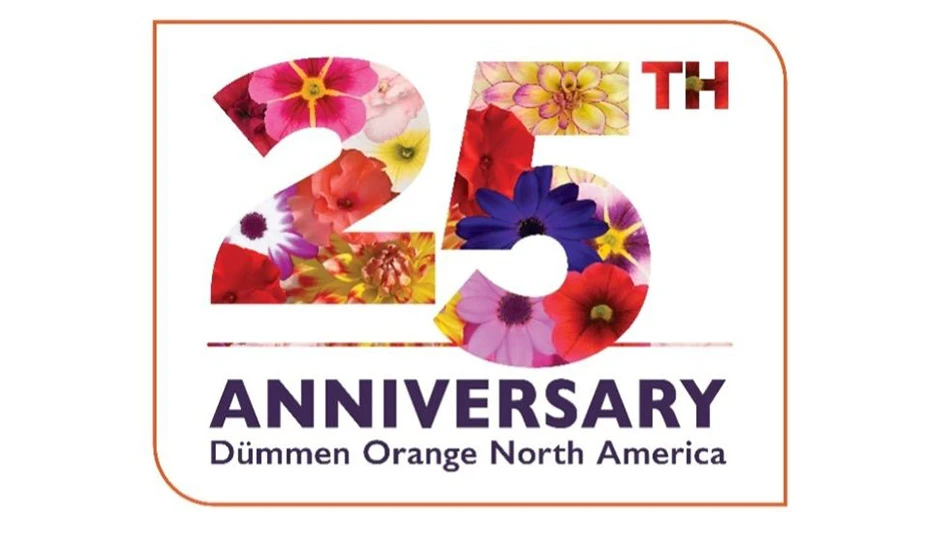 Jeremy Windemuller, the trial manager at Walters Gardens, Zeeland, Mich., has been growing since he was a child. He started with vegetables and other produce, which he then helped sell at a roadside stand. As he got older, he began to see the business opportunities that were available within horticulture.
Jeremy Windemuller, the trial manager at Walters Gardens, Zeeland, Mich., has been growing since he was a child. He started with vegetables and other produce, which he then helped sell at a roadside stand. As he got older, he began to see the business opportunities that were available within horticulture.
So, when he was about 17 years old, Windemuller opened a 20 by 50-foot greenhouse and tried his hand at annual production. “That was when the annual market was doing really well,” he says. But even so, Windemuller gradually transitioned to some perennial production. In addition to operating his own nursery, he began work at Walters Gardens.
When he started work at Walters, he was exposed to a wide variety of perennials and decided to convert his entire nursery to their production. “I saw that as more of a niche market that I could do better at,” he says. He eventually added some landscaping capabilities to his operation as well.
“I’ve kind of branched off into different directions over the years. There are a lot of perennial growers out there, but many of them do both annuals and perennials, or maybe don’t focus on the newer genetics out there,” he says. “That’s where I see a good destination as a business, staying cutting edge with new varieties, knowing what’s quality out there and what’s going to perform in customers’ gardens for a long time.”
Windemuller has roughly an acre of outdoor growing space at his nursery, where he mainly grows products from Walters Gardens, but a few other places as well. He sells products, like Catmint ‘Purssian Blue,’ at a large farmer’s market in Holland, Mich..
“We have a very large mobile garden center that we set up there every Saturday. That’s where we retail most of our products. But we also do landscape and design and we move some of our perennials through that as well,” he says.
Because of his position at Walters Gardens, Windemuller feels like he’s got a leg up on some of his competition.
“I’ve had several years of experience with new varieties before they even come to market,” he says. “A lot of growers are skittish about bringing in new varieties because they aren’t sure how it will grow for them, or how it will perform at their particular nursery.”
But growing and retailing Walters plants also has a benefit for the company. Windemuller is able to gather cultural information, details on which varieties are performing well and which might need some help, and then report back to Walters.
Standardized testing
For Windemuller, the future of the horticulture industry rests on the realization that quality beats quantity.
“There are a ton of [new varieties] each year,” he says. “I sense a lot of frustration from growers that it’s hard to keep up. We as growers who produce these new varieties, as hybridizers, need to think how to maybe slow that down and really put quality varieties on the market. Varieties that will stand the test of time.”
 Windemuller believes that changing the model for introductions, even slightly, could benefit growers, yes, but consumers and landscapers as well. He says that plants shouldn’t just work well for growers, they need to perform in landscapes and home gardens.
Windemuller believes that changing the model for introductions, even slightly, could benefit growers, yes, but consumers and landscapers as well. He says that plants shouldn’t just work well for growers, they need to perform in landscapes and home gardens.
“If the consumer doesn’t do well with the product we produce then it snowballs,” he says. “I’d like to take more of a look at how we can produce quality varieties that flower longer and hardier for colder zones. Also, there’s a big need for more tolerant plants, low-maintenance plants.”
Consumers either want to spend less time maintaining gardens or have less time to maintain gardens, Windemuller says. Either way, they still want a high-quality, beautiful plant.
“Consumers are putting their trust in us to test these things in so far as hardiness goes, and they put investment in all these plants and then for them to not be hardy is a problem for our industry,” he says. “Testing and trialing and improving what goes to the market is going to be a big focus for me.”
A stroll in his shoes
Unlike most of Walters Gardens, which primarily grows plugs, Windemuller’s cordoned-off trial area is focused on finished containers. During his trials, Windemuller and his team monitor a host of growth factors, including which temperatures affect which plants and how, and which plants require fertilization.
The team documents the results using photography. Pinching and Pathogen Derived Resistance tests are also performed.
Windemuller also handles most of the tradeshow plant production, which requires a lot of scheduling and forcing. To properly prepare plants, he must map out when the plant will need to be brought in, how long it needs to be fertilized, when the plant needs to be warmed back again to cause flowering and what the timetable is for flowering.
“It’s a lot of work with artificial lighting, supplemental lighting, and getting plants to grow at the right temperature,” he says. “It’s probably the most challenging part of the job, forcing plants that don’t want to be awake to look really nice and be able to go to tradeshows.”
And while the work is challenging, it can be equally rewarding.
“I really love forcing and finishing perennial plants in large containers. You actually get to see the results of your work, as far as a flowering plant goes. You get to work with a lot of customers,” he says.
Most recently, Windemuller and his team worked with Philips on an LED light trial, which proved very successful for Walters.
“We worked with finished plants but we also did some plug material. Our goal was to see how we could make [LEDs] work with Walters production, how we could speed crops up, and hopefully create a better product for our customer,” he says. “With several varieties we really saw a benefit to having the LEDs — as far as keeping plants more compact, helping them root out faster and creating a better plant with better color.”
The trial took place early in 2015, starting in the deep winter months and carrying forward until early spring. Windemuller says Walters Gardens is planning further LED trials to test how the lights could be incorporated into production.
“There’s a good possibility that we could add Philips in the near future,” he says. “This was more of a trial setup. We want to see if we can generate similar results in a different setting.”
Looking to the future
Part of Windemuller’s job is gazing into the crystal ball of the future. Much of what he works with at Walters is years from being introduced to the industry, and having a role in what will eventually be introduced is a favorite part of his job.
The next few decades could be tough for horticulture, Windemuller says. He believes the industry is still contracting and the number of total growers has shrunk. He also thinks that growers are trying to strike a balance between serving big-box stores and independent garden centers.
“What I see is a big push for the big-box industry. But I also see the importance of independent garden centers as well. IGCs are a good area to introduce new varieties,” he says.
FOR MORE: To see video interviews with Jeremy, check out Greenhouse Management’s video coverage of the 2015 Michigan Garden Plant Tour. greenhousemag.com/videos/

Explore the September 2015 Issue
Check out more from this issue and find your next story to read.
Latest from Greenhouse Management
- Flexible fungicides
- Super Charged Moon Juice from Moon Valley Nurseries now available nationally
- 2025 Proven Winners Horticulture Scholarship applications now open
- How to improve inventory and shipping management in the greenhouse
- Leading Women of Horticulture: Anna Ball, Ball Hort, and Terri McEnaney, Bailey Nurseries
- GM CEA HERB Part 2: A guide to increasing the sowing density of culinary herbs
- GM CEA HERB Part 1: Best practices for producing culinary herbs in controlled environments
- USDA fires experts on invasive pests, including Asian citrus psyllid, chilli thrips





